Hurricane Helene disrupted North Carolina’s second week of mail voting. With rescue and relief taking priority in the mountains and foothills right now, it may take a while to understand the hurricane’s full impact on voter registration and voting.
Voter Registration Changes
Voter registrations kicked into a higher gear in North Carolina at this point four years ago. That did not happen this year, perhaps because Helene slowed the voter outreach. Also, many election offices in western North Carolina were closed on Friday, September 27, meaning that some registrations were not processed. So, we could see a delayed surge in registrations in the coming weeks.

You can keep up with registration trends at Voter Registration Changes on the John Locke Foundation’s Carolina Elections page.
Early Mail Ballot Returns
As seen at Vote Tracker on Locke’s Carolina Elections page, county election boards accepted 73 ballots on September 20 (the day officials sent out mail ballots), and another 29 were accepted over the weekend.

Again, Hurricane Helene has had an impact. From September 27 to 29, no mail ballots were accepted in the 11th Congressional District (located entirely in the mountains). The 5th, 10th, and 14th districts in western North Carolina were also affected. 121 of the 127 ballots accepted in the 14th District were in Mecklenburg County.

If you live in western North Carolina and recently mailed your ballot, you can check its status at Ballot Trax. If you want to help people dealing with the effects of Hurricane Helene, click here.
Absentee Ballot Requests
Here is a snapshot of requests as of today with comparisons to a similar point in 2016 and 2020, provided by the North Carolina State Board of Elections:

The difference in total ballot requests between the three elections makes it difficult to compare from one election to the next, so here is a comparison by percentage:

The Republican portion increased from 23.6% of all absentee ballots last week to 24.3% this week, while the Democratic portion dipped from 37.3% to 36.6%. The unaffiliated portion basically held steady.
Comparing North Carolina Presidential Polling to 2016 and 2020
To get some context for all the polls we see for the presidential race in North Carolina, here is a comparison of the Real Clear Politics North Carolina presidential polling averages for September 30, 2024, 2020, and 2016.

Polling for each election was very close on September 30. Please note that the number of undecided voters is much less now than it was at this point in 2016 and a little less than 2020.
